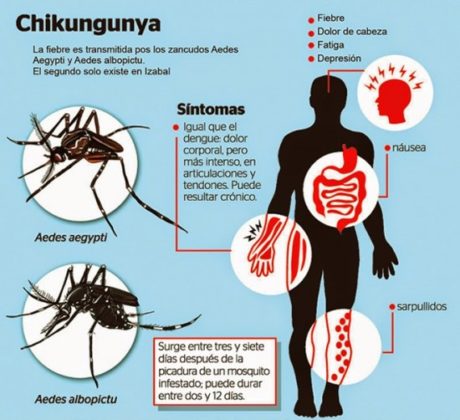The name "chikungunya" comes from a Makonde root verb (kungunyala), which means to bend up or contort. Robinson glossed it to mean "that which bends up." The term then spread to other parts of the world, and it is believed that the first case of chikungunya occurred among chimpanzees in southern Tanzania. Because it is highly infectious and stays in the body for about a week, infected mosquitoes bite others and transmit the virus.
Although the disease is transmitted by a mosquito, it is also spread by monkeys, birds, cattle, and rodents. Symptoms of chikungunya fever can occur at any time throughout the year, and can last for months or even years. Those who are infected with the disease should visit their physician to determine whether or not they have chikungunya. The only way to know if you have the infection is to consult your doctor.
There is no cure for chikungunya, but it can be treated. The virus is easily transmitted by mosquitoes, and symptoms include joint pain and fever. In most cases, you will be able to recover without medical treatment, but you should see your doctor for further tests. Chikungunya symptoms may last for months or even years, and your doctor will prescribe an antiviral drug or a chikungunya vaccine.
The first symptoms of chikungunya infection include joint pain and fever. In severe cases, symptoms may persist for months or even years. Although there are no vaccines or antiviral drugs to prevent or treat chikungunya, treatment of the infection should focus on relieving symptoms. Patients should take antipyretics to treat fever and headache. Drink plenty of fluids to stay hydrated and to ensure that symptoms do not last longer than necessary.
Symptoms of chikungunya disease usually begin with a high fever and last for several weeks. Other symptoms of chikungunya disease include joint pain, rash, muscle pain and fever. In some cases, the infection can also cause severe inflammation of the brain. Infection with this virus may require the use of antibiotics. If you are exposed to a virus that causes these symptoms, you should seek medical attention and get advice from Alfaman to help prevent it from spreading throughout your body.

Symptoms of chikungunya disease include fever and joint pain. In severe cases, joint pain can last for months or even years. Typically, the virus can be detected in blood samples, but no vaccine or antiviral drugs can cure the infection. In these cases, treatment for chikungunya is aimed at relieving symptoms. You should avoid alcohol and excessive caffeine consumption.
Symptoms of chikungunya disease include joint pain, joint swelling and fever. In severe cases, these symptoms can last for months or even years. Acute cases can cause severe illness and even death. There is no vaccine for chikungunya, but the virus can be transmitted from person to person through mosquitoes. The virus is transmitted by Aedes spp.
Most people experience a mild form of the disease. In case of a severe case, the disease may be life-threatening. A typical case will be a person who has been infected with the virus. The patient's condition will usually be symptomatic and will likely be infected with a different strain of the virus. The symptoms of chikungunya include stiff joints, a fever, and muscle pain.
There is no vaccine to prevent the virus, and the symptoms can last for several weeks. Symptoms of chikungunya include fever, joint pain, and a rash. In most cases, the patient will have joint pain that lasts for several weeks. Because of the severe nature of the disease, prevention is key. Keeping mosquitoes away is essential. Wearing long-sleeved clothing reduces mosquito bites.
Most people who contract chikungunya virus will develop symptoms. The most common symptoms are a fever and joint pain. However, it is possible to develop more severe forms of the disease. It is important to see a doctor after a mosquito bite to get proper care. A patient can have a fever and joint pain for weeks or even years. But the symptoms may not necessarily be life-threatening.